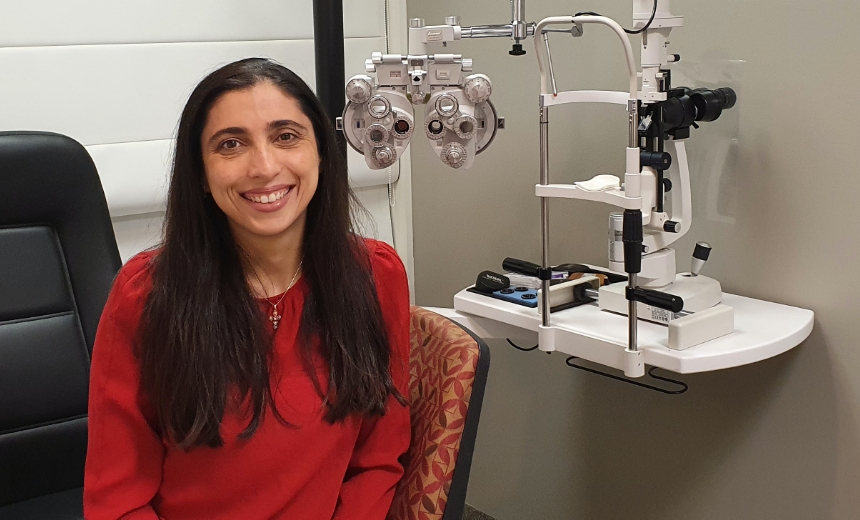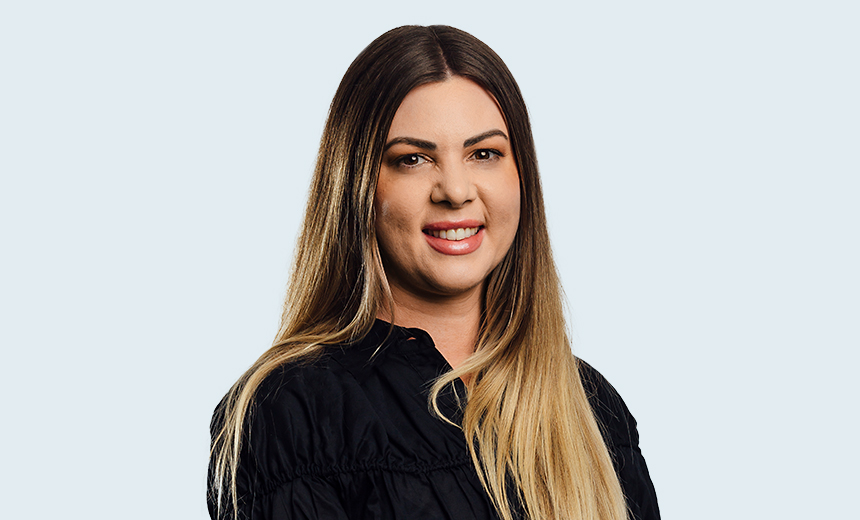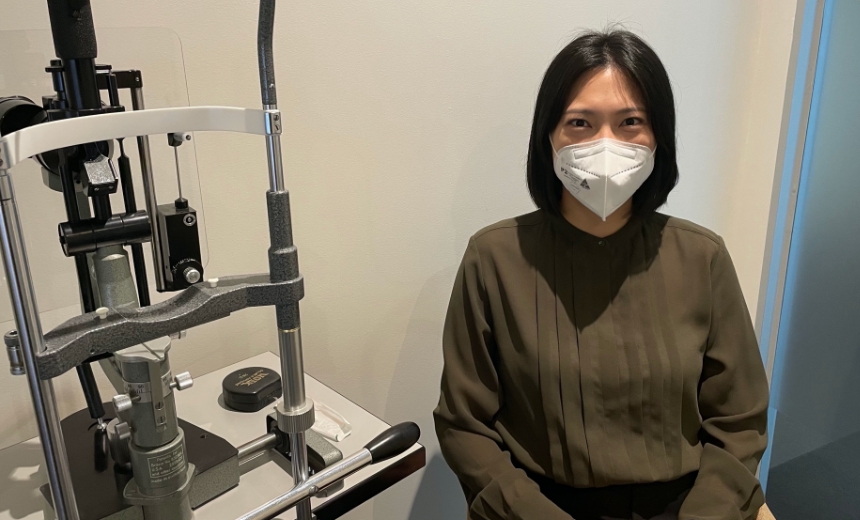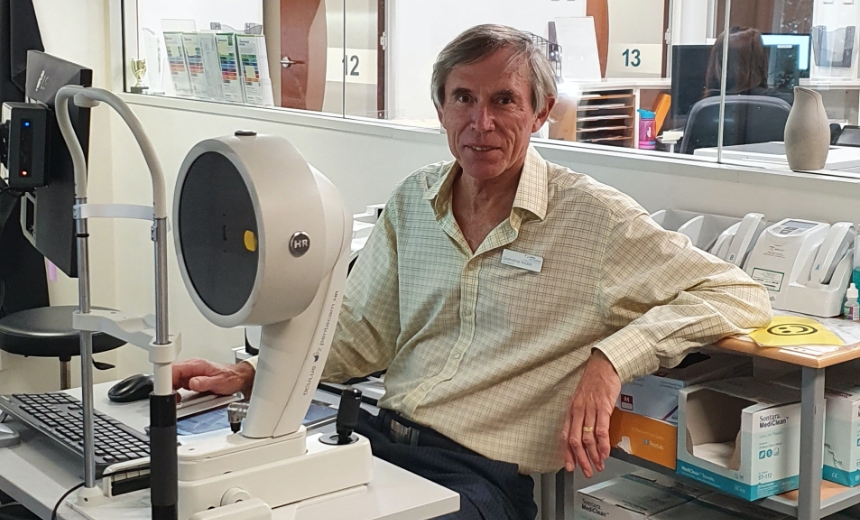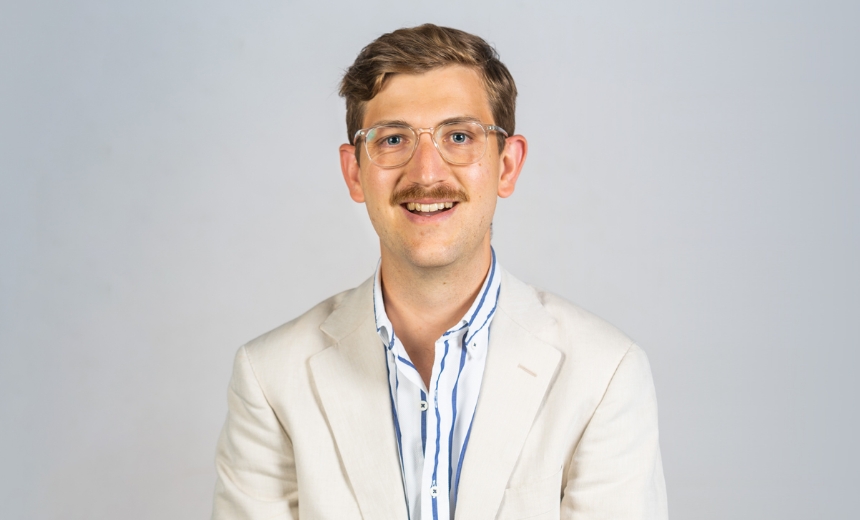Five minutes with our Clinical Optometrists
To celebrate World Optometry Day, we asked the incredible optometrists that work at Vision Eye Institute a few thought-provoking questions. Take a look at their answers below.
Elena Carrabs
Which Vision Eye Institute clinic do you work at?
I’m at the Chatswood clinic in New South Wales.
What’s your favourite thing about being an optometrist?
I love interacting with different people each day and helping them with their visual needs.
What made you decide to become an optometrist?
I was drawn to the scientific and clinical nature of this occupation. It has a nice balance of clinical work, patient interaction, and making a difference in people’s lives.
What’s one thing you’d like people to know about eye health?
Sun can do a lot of damage to the eye, so it’s really important to wear sunglasses.
Anthea Nalder
Which Vision Eye Institute clinic do you work at?
I work with Dr Lee Lenton at RiverCity Private Hospital in Queensland.
What’s your favourite thing about being an optometrist?
I get a real kick out of helping people. The joy they get from their sight being restored, or from achieving freedom from spectacles, fills me with purpose.
What made you decide to become an optometrist?
I didn’t decide to pursue optometry until partway through my first year of studies. I knew the field of allied health was where I wanted to end up but I hadn’t fully mapped out my future at the age of 17. I felt that a career in optometry would give me a good work-life balance while still providing me with the opportunity to make a difference in people’s lives.
What’s one thing you’d like people to know about eye health?
The eyes are not a difficult organ to take care of. Simply maintain good physical health, protect your eyes from the sun and avoid smoking. If you have a family history of eye disease, regular eye health checks are a must. If you have no family history of eye disease you should still present to your local optometrist for routine screenings every two years or so. Regular eye checks are important for the early detection of diseases that are the cause of preventable vision loss.
Emma Nutt
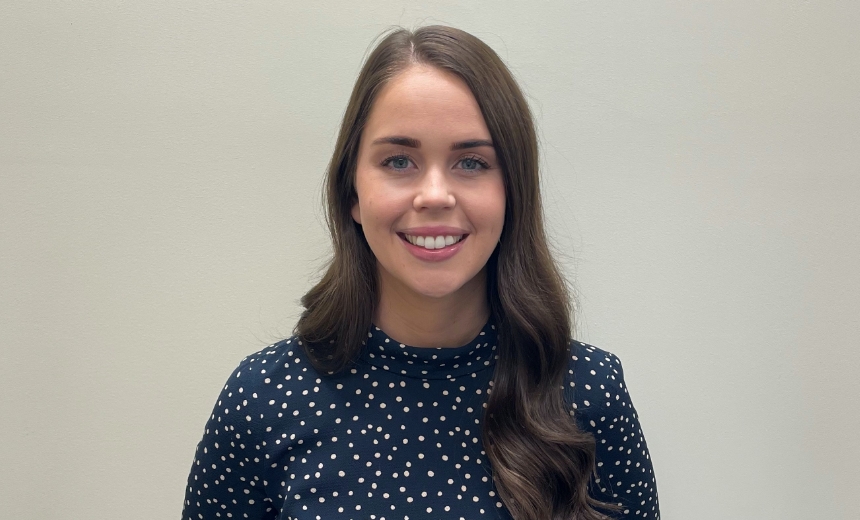 Which Vision Eye Institute clinic do you work at?
Which Vision Eye Institute clinic do you work at?
I work at two clinics in South Australia: North Adelaide and Windsor Gardens.
What’s your favourite thing about being an optometrist?
I enjoy the challenge of diagnosing and managing an array of eye conditions with the aim to improve my patients’ vision and quality of life.
What made you decide to become an optometrist?
I completed my high school work experience at my local optometry practice. It was during this time I learnt first-hand the positive impact optometrists can have on their patients’ lives.
What’s one thing you’d like people to know about eye health?
Many eye conditions can cause irreversible blindness. Prevention is often better than cure and so regular, routine eye examinations are the key to saving your sight.
Michelle Shih
Which Vision Eye Institute clinic do you work at?
I work at the Melbourne laser eye surgery clinic in Victoria as well as the Blackburn South and Camberwell clinics, performing laser eye surgery suitability assessments.
What’s your favourite thing about being an optometrist?
Being able to improve someone’s quality of life. That could include anything from providing solutions as simple as a pair of glasses to improving their overall health outcome by finding signs of diseases such as diabetes or high blood pressure in their eyes. My favourite moments are hearing the happy, ‘oh my God’ reactions when patients put on their glasses for the very first time. I also love hearing how they’ve never noticed the leaves on trees before!
What made you decide to become an optometrist?
I’ve needed glasses since I was a young child, so I’ve always been fascinated by what optometrists do, as eyesight is so critical to a person’s quality of life. I decided to become an optometrist after seeing how rewarding it can be to help patients on a daily basis and to be a patient’s first point of call for any visual and eye health concerns.
What’s one thing you’d like people to know about eye health?
I would like people to know that not needing glasses is not an indication of how healthy your eyes are. Many eye diseases do not present as blurred vision. I have diagnosed many eye diseases as incidental findings, where the patient did not present with any signs or symptoms. Make sure to get full eye health examinations with your optometrist every 1–2 years!
Stephanie Stavrinakis
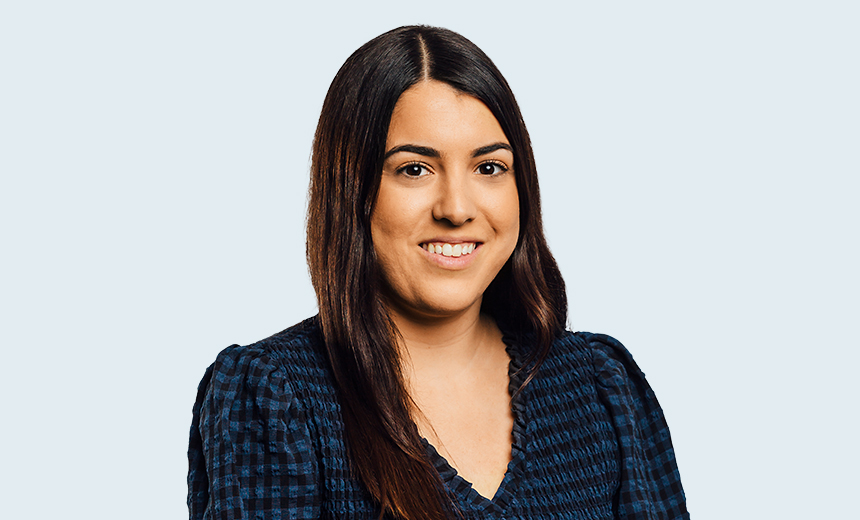 Which Vision Eye Institute clinic do you work at?
Which Vision Eye Institute clinic do you work at?
North Adelaide and Windsor Gardens in South Australia.
What’s your favourite thing about being an optometrist?
I enjoy meeting new people every day and making a positive impact on their lives by helping with their eyesight. That could be a result of giving someone their first pair of spectacles (I love seeing their reaction to how clear their vision is!), or detecting, diagnosing and managing eye diseases.
What made you decide to become an optometrist?
I wore spectacles and contact lenses for myopia (short-sightedness) from quite a young age and because of that, I visited the optometrist multiple times. Apparently, after the first couple of appointments, I looked at Mum and said, ‘that’s what I want to do when I grow up’. I never changed my mind!
What’s one thing you’d like people to know about eye health?
It’s really important to have regular eye examinations as there is so much more to optometry than blurred vision and spectacles. Even if you don’t feel as though anything is wrong, it is important to have regular checks for early detection of eye diseases such as glaucoma and macular degeneration, which can cause blindness.
Grahame Tindall
Which Vision Eye Institute clinic do you work at?
I work at the Chatswood, New South Wales clinic.
What’s your favourite thing about being an optometrist?
I love the ability to determine a prescription that allows people to see well.
What made you decide to become an optometrist?
I was inspired by experiences I had as a patient receiving eye exams from optometrists from a young age.
What’s one thing you’d like people to know about eye health?
Eye health can change. Regular eye examinations are vital.
Daniel Tretola
Which Vision Eye Institute clinic do you work at?
I work with Emma and Stephanie at North Adelaide and Windsor Gardens, South Australia.
What’s your favourite thing about being an optometrist?
I love the work I get to do as an optometrist and often find myself in awe of what we can detect, manage, and observe, as well as the natural beauty of the eye itself.
What made you decide to become an optometrist?
I was lucky enough to lock onto optometry from a relatively young age. In year 10, when we were determining what we wanted to do for a career, I knew I wanted to work with people in a healthcare setting. Becoming an optometrist was suggested to me by a friend and so I added it to my list. I didn’t know a lot about what an optometrist did, but I had been to one as a child and it hadn’t evoked any traumatic memories for me!
A month later we went on a family vacation to Vanuatu and, by chance, I met an optometry student from Sydney. I was able to ask him about his experiences and he convinced me that it was an interesting career and something I would enjoy. As a result, when we returned, I arranged to do my work experience at an optometry clinic. I absolutely loved my experience there and set my sights on becoming an optometrist.
What’s one thing you’d like people to know about eye health?
I want people to know how important it is to have regular check-ups even if you feel like everything is going ok. Also, if something doesn’t seem right with your eyes, get them checked as soon as you can. Generally, the earlier a problem is detected, the better the outcome.
Date last reviewed: 2024-06-07 | Date for next review: 2026-06-07

